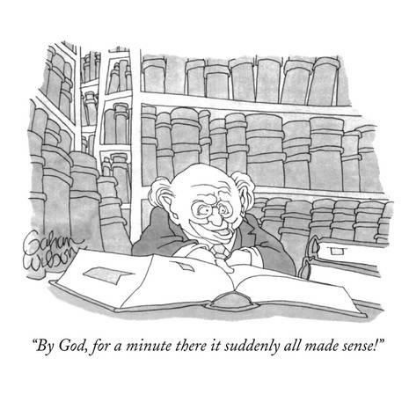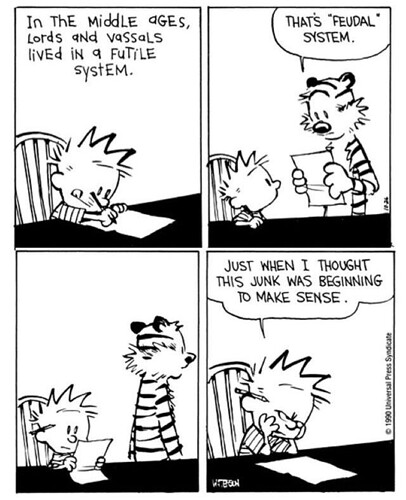Taking some time this morning to go over Chapter 3 posts I’ve read but not had the brain power to respond to.
I think this is a really useful comparison and lovely pun.
I think a more organic or integrated approach is absolutely necessary and desirable. Not only are most lay people unable to understand the professionalized apologetics they know about, but the person on the street wouldn’t either.
I believe that Penner proposes that the outworking of a person’s faith in their life IS the apologetic itself. (“Put your money where your mouth is.”) Do we live in a way that even remotely supports our claims about our faith? If not, why? What does that failure communicate?
There is nothing “professional” about living in faith.
Having been on the receiving end of all sorts of door to door callers and pamphleteers in public, I know my own reaction just to that initial, contact. I don’t want to have this conversation. I don’t want your stuff. I don’t … I imagine that’s the response many people have to similar contact attempts from Christians, which don’t even get to "apologetics. By insisting someone be professionally apologized, I’m very concerned that we are simply alienating them from any conversation about anything of importance.
Lots of us are wrangling with our theology and traditions regarding these questions as well. (They don’t all have easy answers for me.) Maybe the one benefit of the Culture War to anyone from the U.S. church right now, is that a few more Christians are recognizing that these power-obsessed games that seek dominance and control over culture, that is other humans, rather than faithful living within the culture, are ineffective and damaging in every possible way. Everyone loses and Jesus is shown to be unworthy of our faith, because our faith relies on the tools of dominanc and control.
Last chapter is called Politics of Witness. I think we’ll find Penner addressing some of these issues very soon.
I read this differently, Mark. Penner has remained overtly Christian in his discussion so far, in spite of being open to input that in many Christian circles would be rejected. But I don’t think he, or Lewis, are interested in entirely reworking the faith, certainly not the object of it. Lewis, and I think Penner, are humbly acknowledging that in spite of our best efforts to get theology right and pray right, we cannot know God as he is. Every possible human conception of God falls short in egregious ways.
Penner has not, at least so far, defined clearly what he means by apostolic message, but he does refer a number of times to Christian tradition and the texts we use. Here is one of a number of examples:
I want to think of theology and Christian belief hermeneutically, as Cavell views philosophy: as a set of texts that are part of the ongoing conversation of a widening community of people (i.e., the church). If the modern epistemological paradigm is focused on the question, “Is it (belief about the world/reality) true and justified?” the hermeneutical paradigm I want to replace it with puts at the center of its inquiry the question, “Is it intelligible and meaningful?” The pressing issue is not solving an abstract set of theoretical problems but interpreting the symbols and texts of a received tradition in order to understand their meaning and significance in relation to a concrete set of problems and exigencies that we encounter…To be sure, there will be arguments, logic, evidence, and so on that are crucial parts of the process of arriving at conclusions within interpretive traditions, but these are invitations for response from differing points of view rather than an attempt to foreclose on them. These alternate points of view that emerge through dialogue are not barriers to understanding but enable us to gain greater insight into the text (as well as ourselves, our world, and others) as we submit our interpretations to critical tests that are free and open to critique and response. (pg. 68)
Phil, this post of yours was enormousy encouraging to me. Just get through the chapter. I listened to a good chunk of it all at once, and that actually helped, because the screen reader just plows through, whether I understand every word or not, and I couldn’t turn it off, while I wore gloves, cleaning up the kitchen.
This was a great exchange. I had never thought of the event that way, which I expect is the norm. Which is sad.
Sometimes that happens to me, too.
Thank you very much for this, Terry.
But in terms of being truth, and living out truth, the claim that “we make truth” suddenly comes into new light for me, by changing the forcus from the proposition to the person.
Penner writes (p. 102):
Whether the truth I proclaim is true for me will be evident from how I live—if that truth is appropriated by me as an integral part of how I live and act. This means the act of witness is much more like a confession of personal conviction than a logical argument for the objective truth of its propositions.
This really raises the stakes and the challenge for what prophetic witness must entail. Now it isn’t me saying something (a comparatively easy way for me to let myself off the hook), but I must now live something out in front of and to my neighbor (a much harder and higher challenge). And in my visible life, my neighbor sees whatever truth I may have to share.
Edification of people is where the spiritual rubber really meets the road, and that isn’t to deny the importance of propositional accuracy along the way.
Worth the (full) price of the book. Amen and amen.
What a challenge to me (us?)!
Speaking for myself, what a lot to reevaluate and also confess and repent of!
Paradoxically this way feels dangerous precisely because it requires actually trusting God to provide insight continually in life as it happens rather than providing formulaic maxims you can apply with a sense of self reliance.
In spite of our entirely different views of god/God, we are unified in this statement!
As per Merv’s suggestion here is his response to my [post] (Dealing with antitheist and “new atheist” rhetoric - #10 by Terry_Sampson)
In a different thread.
Oh, thanks, Mark. I had thought to ask you about this, too, but didn’t have a chance. RL again.


